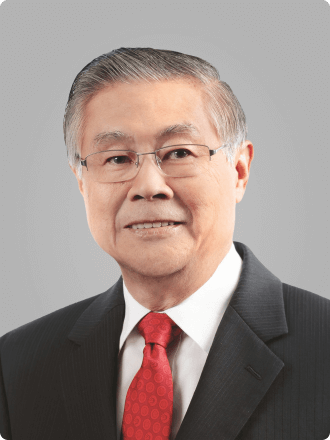
Cryptocurrency exchanges are the backbone of digital asset trading, serving as the gateway for buying, selling, and investing. Whether you’re launching a new platform or optimizing an existing one, choosing the right exchange model—Centralized Exchange (CEX) or Decentralized Exchange (DEX)—is a strategic decision that shapes user experience, security, and scalability.
CEX platforms lead in liquidity, ease of use, and compliance readiness, making them a strong choice for mainstream traders. Meanwhile, DEX platforms are revolutionizing peer-to-peer trading with privacy, security, and decentralized ownership.
But which model best aligns with your business vision? Let’s break down the differences and explore which solution fits your needs.
Centralized Exchanges (CEX): A Trusted Option for Mass Adoption
The Power of CEX
CEX platforms dominate the crypto landscape due to their high liquidity, intuitive interfaces, and full-service customer support. These factors make them the preferred choice for businesses looking to onboard a broad range of users, including institutional investors and first-time traders.
For many traders, CEXs are the entry point into crypto. Their familiar structure—resembling traditional stock exchanges—offers a user-friendly experience, making it easier for beginners to buy, sell, and trade digital assets without dealing with complex self-custody requirements. Additionally, advanced trading features like margin trading, futures, and API access cater to professional and institutional traders.
From a business perspective, CEXs offer a more controlled and predictable revenue model. Exchange operators generate income through trading fees, listing fees, withdrawal charges, and premium services, making it easier to forecast and optimize revenue streams. Additionally, liquidity aggregation, market-making partnerships, and institutional trading desks further enhance profitability and market efficiency.
However, building and maintaining a CEX comes with challenges, from regulatory compliance and liquidity management to security risks. Strict regulations require exchanges to implement KYC (Know Your Customer) and AML (Anti-Money Laundering) policies, while custodial asset management necessitates strong cybersecurity measures to prevent hacks and fund mismanagement.
Despite these challenges, CEXs remain the dominant force in crypto trading, offering unparalleled liquidity, trading tools, and a structured business model that maximizes revenue potential for exchange operators.
The Shift Towards Decentralization
While CEXs provide a streamlined trading experience, they also come with trade-offs, particularly in terms of custody, privacy, and regulatory oversight. As crypto adoption grows, many traders and investors are exploring alternatives that prioritize user control and decentralization.
This has fueled the rise of Decentralized Exchanges (DEXs)—platforms that eliminate intermediaries, giving users full autonomy over their funds. Instead of relying on a central entity to facilitate trades, DEXs leverage blockchain technology and smart contracts to create trustless, permissionless trading environments.
Decentralized Exchanges (DEX): The Rising Star of Peer-to-Peer Trading
Why DEX is Gaining Traction
As crypto users demand greater control over their assets, DEX platforms have emerged as a compelling alternative to CEXs. By eliminating intermediaries, DEXs offer:
✓ Self-custody – Users retain full control over their funds.
✓ Enhanced privacy – Minimal KYC requirements compared to centralized platforms.
✓ Decentralized finance (DeFi) integration – Access to yield farming, lending, and liquidity pools.
With advancements in Automated Market Makers (AMMs) and cross-chain trading, DEXs are becoming more efficient and accessible. However, challenges like liquidity fragmentation, scalability, and regulatory uncertainty must be addressed for long-term success.
Which Model Fits Your Business? Matching Challenges with Solutions

Which Model Fits Your Business? Understanding Exchange Solution Models
When selecting a crypto exchange model, businesses must balance control, security, regulation, revenue potential, and user experience. The three primary models—Centralized Exchange (CEX), Decentralized Exchange (DEX), and Hybrid Exchange—each offer unique advantages:
- Centralized Exchange (CEX): A fully controlled platform ideal for mainstream adoption, offering regulatory compliance, robust security, and diverse revenue streams. Its user-friendly interface supports both novice and experienced traders.
- Decentralized Exchange (DEX): Prioritizes user autonomy and blockchain-based security. Users retain complete control over assets, benefiting from smart contract-based transactions while engaging in DeFi services like liquidity provisioning and governance tokens.
- Hybrid Exchange : Combines the best of both worlds, integrating CEX-level usability and security with DEX’s decentralized benefits. This model optimizes liquidity, compliance, and user experience.
Selecting the right model isn’t just about trading mechanics—it’s also about how the platform generates revenue and the operational complexity of running each model.
CEX vs. DEX: Understanding the Business Models and Revenue Streams
Centralized Exchanges (CEX): A Full-Scale Business Operation
CEXs operate as corporate entities, generating revenue through
- Trading Fees – Maker/taker fees from each transaction.
- Listing Fees – Token projects pay to be listed.
- Withdrawal Fees – Charged when users move funds off the platform.
- Margin Trading & Futures – Interest and fees from leveraged trading.
- Staking & Lending Services – Generating yield from user-deposited assets.
Decentralized Exchanges (DEX): A Lean, Smart Contract-Driven Model
DEXs use smart contracts and automated market makers (AMMs) to facilitate peer-to-peer trading. Their revenue comes from:
- Swap Fees – A percentage of each trade.
- Liquidity Pool Rewards – Some DEXs earn a share of LP profits.
- Governance Token Appreciation – Revenue via DAO voting mechanisms and protocol fees.
While DEXs reduce operational costs, they face liquidity fragmentation and regulatory uncertainty, affecting scalability.
From Revenue to Operations: What It Takes to Scale Each Model
While revenue potential is clear, scaling an exchange requires robust operations, infrastructure, and compliance strategies. The next section outlines how CEXs and DEXs differ in their operational needs and challenges.
Operational & Compliance Considerations
CEX: A Structured, Compliance-Driven Model
CEXs require enterprise-level infrastructure with dedicated teams for:
- Regulatory Compliance – Obtaining licenses, ensuring KYC/AML adherence, and managing legal risks.
- Finance & Liquidity Management – Partnering with liquidity providers and market makers.
- Security & Risk Management – Implementing multi-signature wallets, cold storage, and penetration testing.
- Marketing & User Acquisition – Customer support, loyalty programs, and trading incentives.
Case Study: How Binance Scaled to $1B+ Annual Revenue
Binance expanded rapidly by securing regulatory licenses, launching localized fiat on-ramps, and diversifying revenue streams with staking, futures, and NFT trading. However, its centralized model led to regulatory challenges, requiring operational shifts.
DEX: A Lean, Decentralized Model
DEXs do not require corporate entities or large operational teams but still need:
- Smart Contract Development & Auditing – Ensuring security and efficiency.
- Liquidity Incentives – Encouraging liquidity providers (LPs) to stake assets.
- Community Governance – Many DEXs rely on DAOs for decision-making.
Case Study: Uniswap’s $1.5 Trillion Trading Volume
Uniswap pioneered the AMM model, allowing permissionless token swaps. To address liquidity challenges, Uniswap v3 introduced concentrated liquidity pools, improving capital efficiency.
Act Now: Stay Ahead in the Crypto Exchange Evolution
The crypto industry is evolving at a rapid pace. Regulatory shifts, user demands, and technological advancements are reshaping exchange platforms. The key to staying ahead? Innovation and adaptability.
- Already running a CEX? Explore DeFi integrations to expand your offering.
- Considering a DEX launch? Optimize for scalability and multi-chain compatibility.
- Looking for hybrid solutions? Leverage CEX and DEX strengths to maximize market reach.
Why Choose ChainUp as Your Partner?
ChainUp has empowered over 1,000 enterprises in 30+ countries with industry-leading solutions for CEX, DEX, tokenization, and security. Our expertise ensures:
- Rapid Deployment: Reduce time-to-market with turnkey solutions.
- Regulatory Compliance: Navigate legal complexities with built-in compliance tools.
- Advanced Security: Institutional-grade protection for user assets.
- Scalability & Innovation: Future-proof platforms with Web3 and NFT capabilities.
As an award-winning digital assets service provider, ChainUp delivers enterprise-grade infrastructure designed for long-term success.
Let’s Build the Future of Crypto Together
Choosing between CEX and DEX depends on your business objectives, target audience, and long-term vision. Whether you prioritize liquidity, decentralization, or a hybrid approach, ChainUp provides the expertise and solutions to turn your vision into reality.
Get Started Today!
📩 Request a Free Demo and take the next step in building a market-leading crypto exchange.




